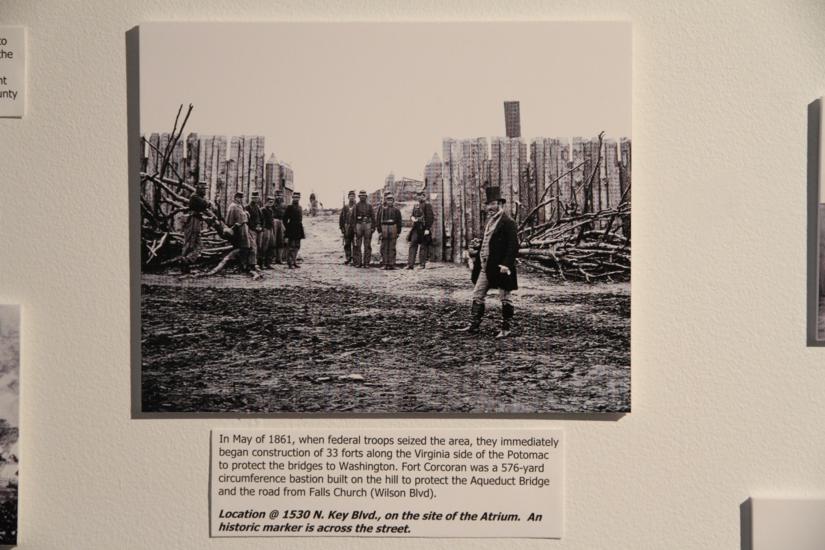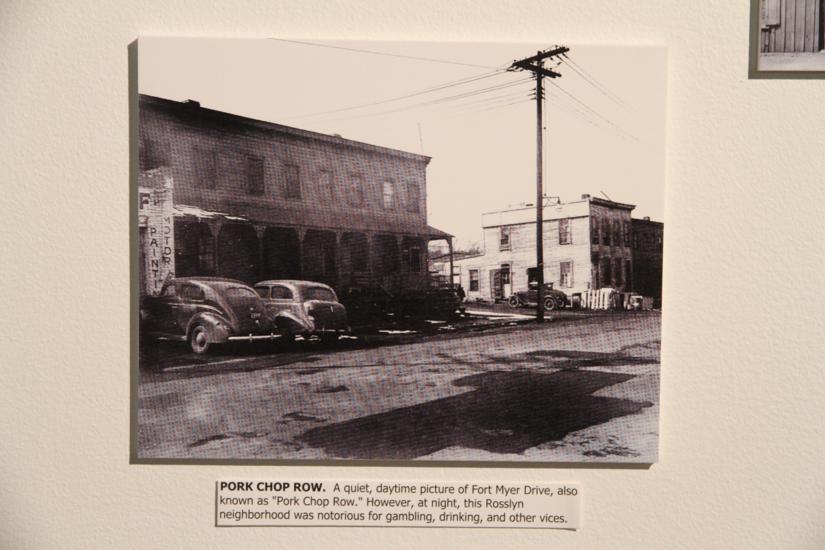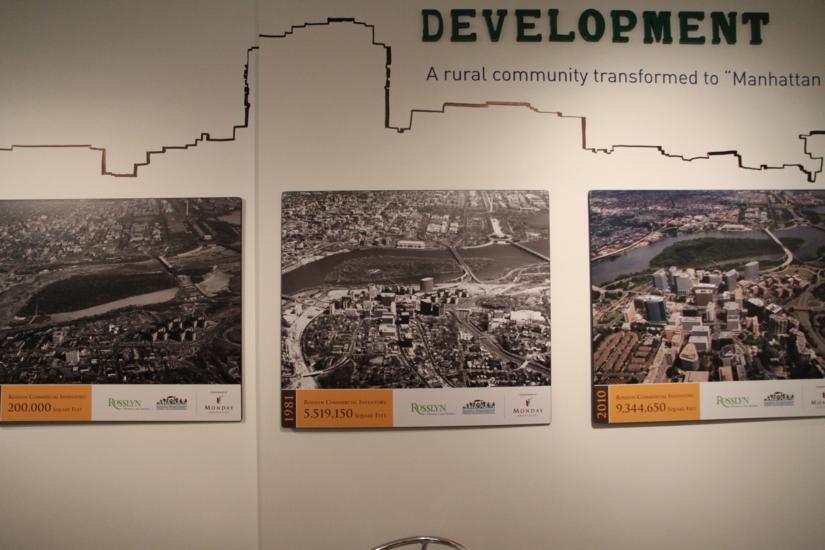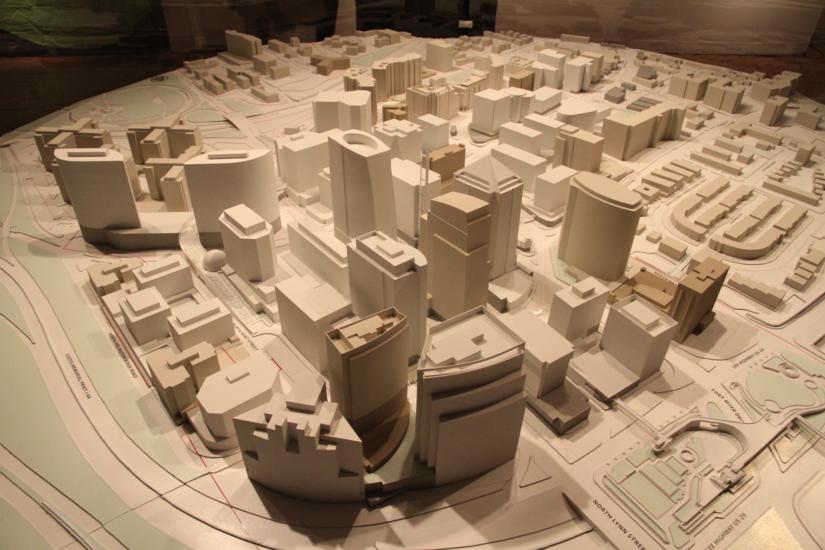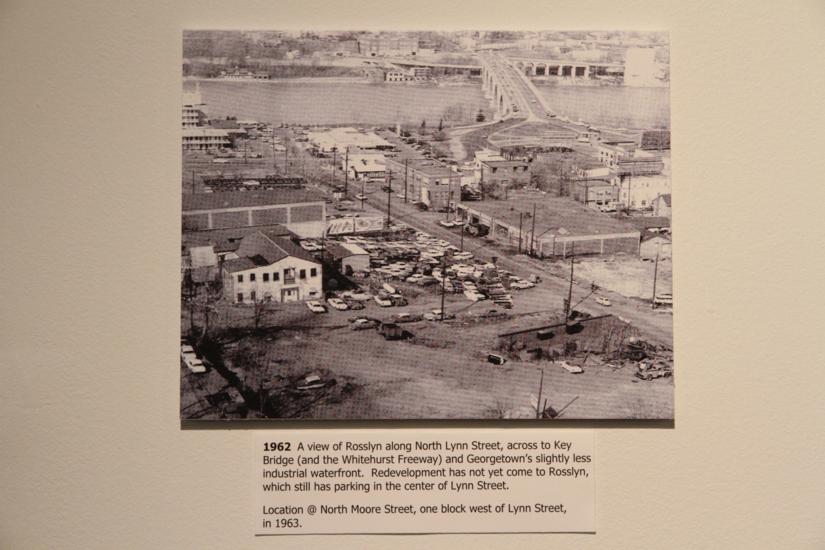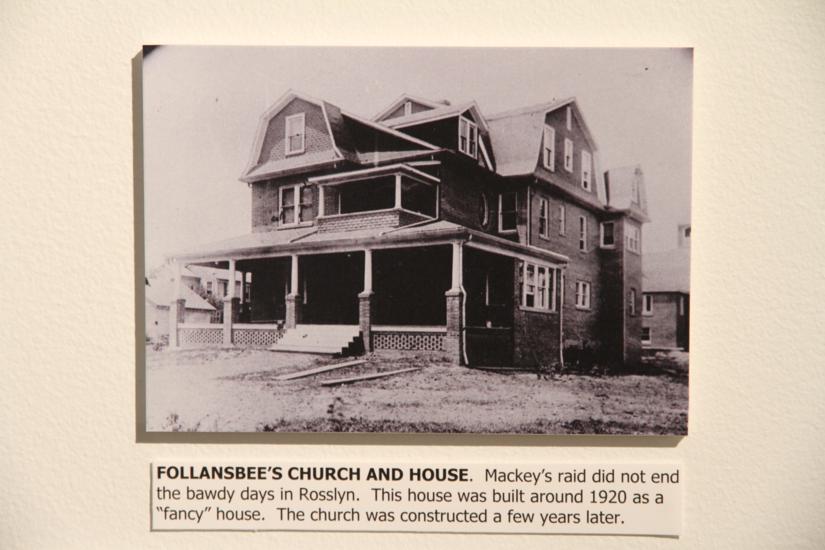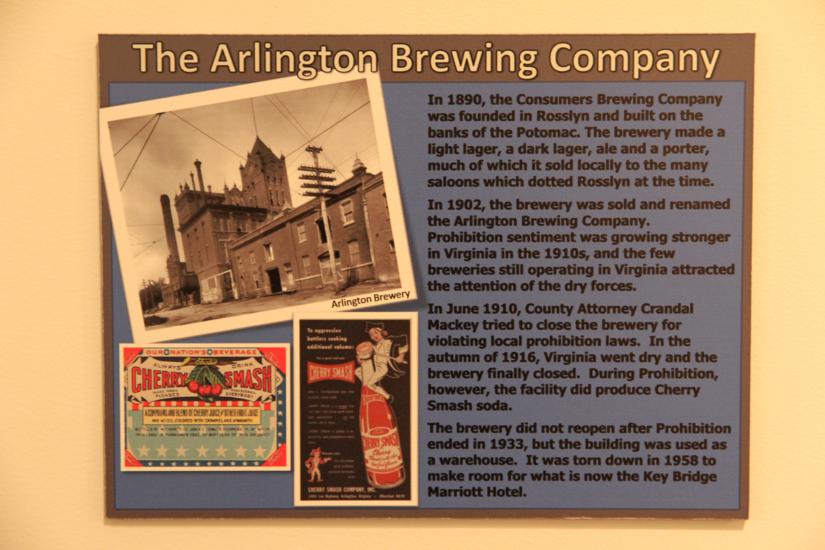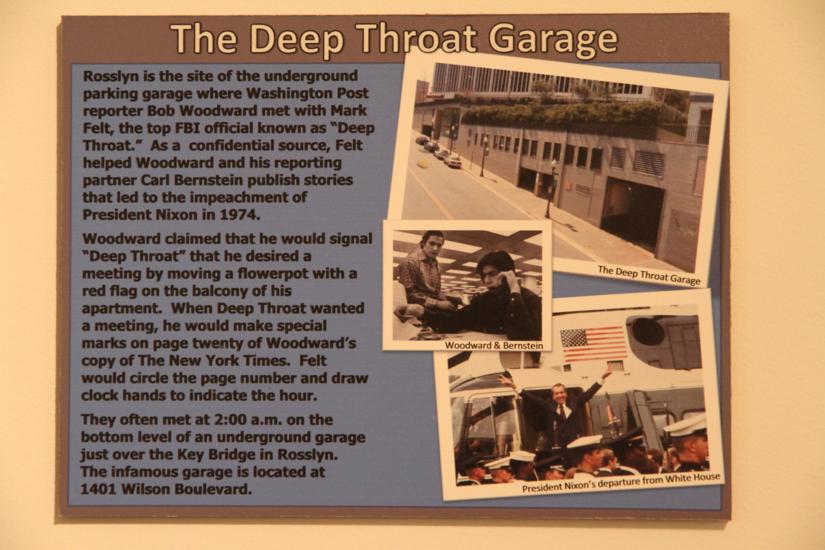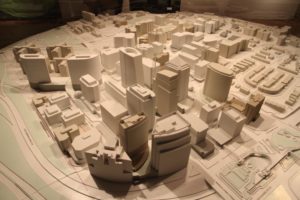 Rosslyn wasn’t always the ho-hum collection of office towers and apartment buildings that it is today. A century ago, it was filled with gambling dens, rough-and-tumble saloons and houses of prostitution.
Rosslyn wasn’t always the ho-hum collection of office towers and apartment buildings that it is today. A century ago, it was filled with gambling dens, rough-and-tumble saloons and houses of prostitution.
Photos from the bad old days adorn the walls of Artisphere’s Work-in-Progress Gallery for an exhibit called “Rosslyn: A Work in Progress.” The exhibit, which runs through March 13, “chronicles Rosslyn’s origins as a lawless, rowdy community in the 1800’s to the thriving urban village it is today, through historical items and images, and renderings of developments coming soon.”
At an opening reception last week, we caught up with local historian Kathryn Holt Springston, who told us some stories of Rosslyn’s bawdy past.
“From 1865, the end of the Civil War, up until 1906, it was so bad. There were 38 saloons, 14 bordellos and who knows how many gambling dens, that were open 7 days a week, 24 hours a day, 365 days a year.”
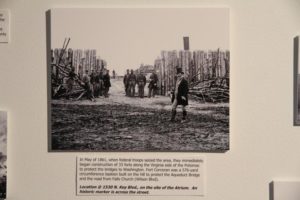 “Cunningham’s was just on a hill above Rosslyn, and it was the only [bordello] that was actually burned before Crandall Mackey’s great raid. What happened was that a soldier from Fort Myer was killed there, so the other soldiers from Fort Myer went over there one night and torched the place.”
“Cunningham’s was just on a hill above Rosslyn, and it was the only [bordello] that was actually burned before Crandall Mackey’s great raid. What happened was that a soldier from Fort Myer was killed there, so the other soldiers from Fort Myer went over there one night and torched the place.”
“Crandall Mackey is like the hero of Rosslyn. In 1904 he was elected Commonwealth’s Attorney by one vote. He armed a party of 12 men with axes, sawed-off shotguns, etc. They rode the train down to Jackson City, which is where the 14th Street Bridge is today, and smashed it up because Jackson City was even worse than Rosslyn. Then they walked up to Rosslyn, they smashed in all the bordellos, threw the whiskey into the street, set some of the places on fire, smashed the gambling dens. The next day the Evening Star had a two inch headline: “Mackey Makes it Safe for Humanity in Alexandria County by Cleaning up Rosslyn Bums.”
(Arlington was called Alexandria County up until 1920, when it was renamed by the Virginia General Assembly to honor Robert E. Lee.)
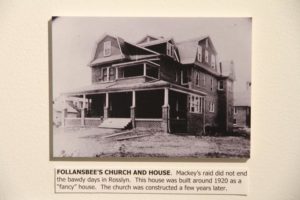 “So Mackey did a lot, but it still stayed pretty bad. There were bordellos such as Follansbee’s, which continued up until the 1920s or 1930s. [There was a] church was in the back, [behind] the 23 bedroom house. My favorite story about this house, though, comes from 1981. A person bought it and petitioned the county board for permission to return it to ‘original use.’ They were ready to vote on it and were going to go ahead with it, when one of the planners said ‘um, excuse me, isn’t prostitution illegal?’ And they went ‘oh no!’ So [the owner] turned it into a tanning parlor, which isn’t far off. That house is gone now, and so is the church.”
“So Mackey did a lot, but it still stayed pretty bad. There were bordellos such as Follansbee’s, which continued up until the 1920s or 1930s. [There was a] church was in the back, [behind] the 23 bedroom house. My favorite story about this house, though, comes from 1981. A person bought it and petitioned the county board for permission to return it to ‘original use.’ They were ready to vote on it and were going to go ahead with it, when one of the planners said ‘um, excuse me, isn’t prostitution illegal?’ And they went ‘oh no!’ So [the owner] turned it into a tanning parlor, which isn’t far off. That house is gone now, and so is the church.”
“After Mackey’s raid, Rosslyn had some bordellos and gambling dens and a few saloons but it started getting more desperate. The lumber yards moved in, the junk yards, the pawn shops. And it became a real dive. Even as late as the 1960s, people didn’t want to come to Rosslyn. It was so bad that they would form armed convoys to go back and forth. To go into D.C. they would have to line up along Lee Highway and form a convoy.”
“A lady I knew took a government job that was headquartered in [Rosslyn] in 1946. She got on the train, came down here, got off the train at Rosslyn station, walked two blocks over there, took one look and said ‘I don’t care how good this job is. Forget it, I’m not working in a place like this.’ So it was pretty bad.”


